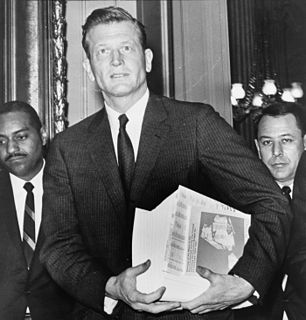A Quote by Chris Paine
Oil companies earned a permanent enemy in me when they messed with the electric car the first time around, and I think they continue to do a disservice in making it seem like fossil fuels are cheaper than they really are in terms of total cost.
Related Quotes
And in the process, we have come up with fuels - algae-based fuels, isobutanol-based fuels and other fuels - that we think will power the planes in the future so that, you know, by 2020 I hope that our planes will be powered on fuels that are clean fuels and are not polluting the environment so that we'll have a green airline and an airline that actually has fuels that will be hopefully cheaper than the dirty fuels of the past. So [we're] doing good and also turning a profit at the same time.
Every candidate running for president has got to answer the following very simple question: At a time when we need to address the planetary crisis of climate change, and transform our energy system away from fossil fuels and into energy efficiency and sustainability, should we continue to give $135 billion in tax breaks and subsidies over the next decade to fossil fuel companies?
The true cost of the pollution that is being dumped into the atmosphere and manifests itself in our sick children dealing with asthma or older folks dealing with heart and lung disease from the pollutions created by the burning of these fossil fuels, may not be reflected in the prices of fossil fuels, but that does not mean we aren't paying a high price for them.
I did 30 Minute Meals for five years on local television, and I earned nothing the first two years. Then I earned $50 a segment. I spent more than that on gas and groceries, but I really enjoyed making the show and I loved going to a viewer's house each week. I knew I enjoyed it, so I stuck with it even though it cost me.
Subsidies for the oil, gas and coal industries are projected to cost taxpayers more than $135 billion in the coming decade. At a time when scientists tell us we need to reduce carbon pollution to prevent catastrophic climate change, it is absurd to provide massive subsidies that pad fossil-fuel companies' already enormous profits.
We can't change the fossil fuel companies' behavior in isolation from the rest of the industrial system. As long as they have customers, they're going to continue to operate, whether or not we divest of their stock. However, divesting might be helpful in terms of disrupting the story that what these companies do is perfectly okay. This situation differs from apartheid in a key regard though: racial equality in South Africa was no threat whatsoever to capitalism as we know it. Ending the fossil fuel era is a much deeper change.
In England, all the English car companies were beginning to circle the drain in a series of well-deserved failures and bankruptcies, earned by making lousy products with very poor production at high prices. So, the government, back in the '70s, nationalized all the British car companies. The result was British Leyland, a name that perhaps doesn't resonate much with you.




































